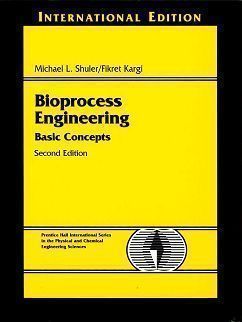書籍分類

Bioprocess Engineering: Basic Concepts 2/e
作者:Michael L. Shuler
原價:NT$ 1,180
ISBN:9780131228573
版次:2
年份:2002
出版商:Pearson Education
頁數/規格:553頁/平裝單色
版次:2
年份:2002
出版商:Pearson Education
頁數/規格:553頁/平裝單色
內容介紹 目錄 作者介紹
- New to This Edition
-
Concepts of validation and Good Manufacturing Practice (GMP) are introduced
* Helps students to better understand regulatory constraints on bioprocess development -
Updated coverage of concepts
* Shows students the connection between traditional ideas and emerging areas—such as tissue engineering and gene therapy -
Material on functional genomics and cellular engineering
* Provides students with new developments in biology as they impact bioprocess engineering -
Expanded discussion of modeling approach
* Presents students with a clarified section on models in continuous cultures and adds cybernetic modeling -
Expanded coverage of chromatography
* Introduces students to discussions of IMAC (immobilized metal affinity chromatography), use of fusion proteins, and porous supports -
Expanded sections on metabolic engineering, animal cell culture, and protein processing
* Offers students information on analysis of metabolic pathways, bioreactor considerations for animal cells, and includes some recent examples -
Additional examples and homework problems—e.g., on topics such as enzyme reaction; reactor operation and scale-up; purification; waste treatment; and genetically engineered cells
* Enables students to more thoroughly test their understanding of applied concepts -
Reorganized coverage
* Gives students a more logical presentation of genetic instability, strategies for genetic engineering, and then an approach to selection of host expression system for production of a heterologous protein


